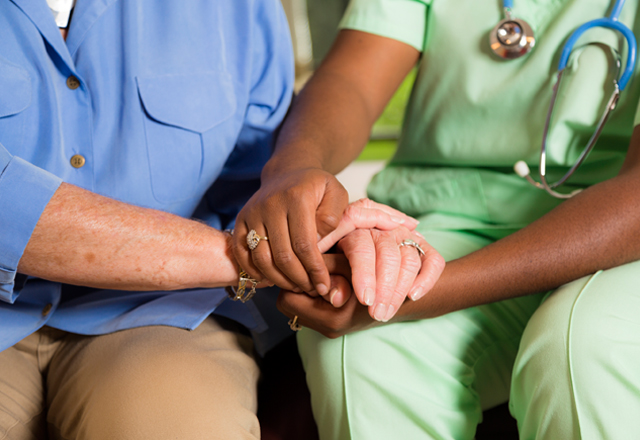Years of carrying a massive backpack full of books to make it here — to OR2 of the Weinberg Building at The Johns Hopkins Hospital — had given me terrible lower back pain at the ripe old age of 23. My goal was to focus on the procedure, but my back throbbed, and my sleep-deprived mind kept wandering. The sound of a phone ringing suddenly jolted me from my daze: “Pathology reporting on frozen section of iliac lymph nodes. Metastatic cancer.”
The air in the room changed, but the operation continued. “This lady is going to die,” said the attending matter-of-factly. It would have been easy to misinterpret her statement as cold, but I had witnessed this particular surgeon stay until 10 p.m. for her patients, visit with each of them during rounds and fight to get them appointments with specialists, so the weight of her words hit harder than most.
My problems were so small compared to those of this patient. When I saw her in the preop area just hours earlier, she looked dazed, as if she had been through so much already and had fully surrendered herself to the whims of the medical system. She knew she had cancer, but this surgery would tell her how much. Just before the surgeons wheeled her back, her family gathered around her to sing a lament. The words were beautiful, and when I saw her open her eyes afterward, I noticed that they had a little more life in them.
This is medicine.
I have only been on my third-year clinical rotations a for few months, but time and time again, I am reminded of how lucky I am. When I look out of the hospital windows at 5 a.m., the misery of my sleep deprivation is often broken by awe at the fact that I am here, at the Johns Hopkins University School of Medicine - my dream school. When those patients walk through the door, the ones that the medical system has given up on, with the hope that we at Johns Hopkins Medicine can care for them, I am reminded what an honor it is to serve them. And finally, when I am splashed with a sudden wave of reality that I am in the presence of someone who will soon die and that I have been given the chance to be with them now, in their last few months or days, I am reminded of the privilege I have been given to make these people feel better in any way, whether I am their surgeon or simply the person holding their hand while their epidural is placed.
Practicing medicine is a roller coaster. When you are feeling your worst, overwhelmed by exhaustion or sadness, or on the days when you simply feel that you are not good enough, your patients will always remind you that you are lucky enough to be yourself, lucky enough to be alive and healthy, lucky enough to be given the opportunity to serve others, and that this is what makes you good enough for them.
Related Content
- Through an unexpected death, a medical student learns that medicine isn’t just pure science.
- Primary Care Clerkship brings Johns Hopkins medical students face to face with patients and community doctors.

Thanks Rabia! Take care and thanks for sharing this with us.
Comments are closed.